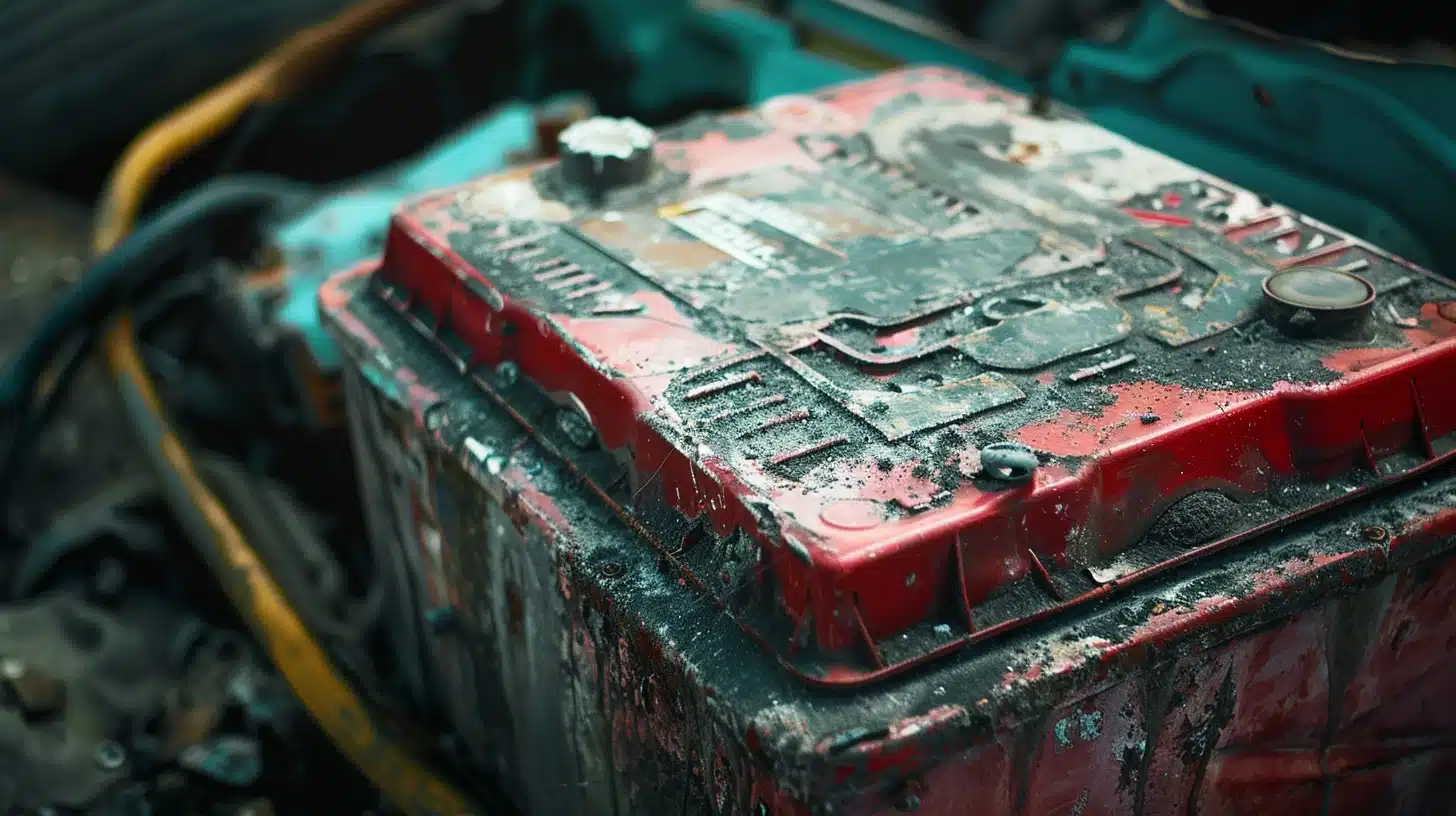(photo credit: Somebody who could stand to have their battery replaced. And soon)
Table of Contents
ToggleThe Gist
The lifespan of a car battery can vary depending on several factors such as usage patterns, weather conditions, and the quality of the battery itself. On average, a car battery can last anywhere from 3 to 5 years. For me it’s always closer to the 3 than it is the 5. Some batteries may last longer with proper maintenance (hahaha), while others may fail prematurely due to factors like extreme temperatures, frequent short trips, or electrical system issues (which is par for the course at our house).
Regular maintenance can help extend the life, but who does that. But who does that?!
Car batteries are the unsung heroes of our vehicles, providing the necessary power to start the engine, operate lights, and power various electronic systems. But just like any other component in a car, they have a finite lifespan. Understanding how long a car battery typically lasts, along with factors influencing its longevity, can help drivers anticipate when it might need replacement and ensure their vehicle remains reliable.
Battery Basics
At its core, a car battery is a rechargeable energy storage device that converts chemical energy into electrical energy to power the starter motor and ignite the engine. Most car batteries are lead-acid batteries, comprising lead plates submerged in a sulfuric acid solution. When the battery is discharged, the lead plates react with the acid to produce electricity. Recharging the battery reverses this chemical reaction.
Types of Car Batteries
Car batteries come in various types, including traditional flooded lead-acid batteries, absorbed glass mat (AGM) batteries, and gel batteries. Each type has its own advantages and disadvantages, ranging from price and maintenance requirements to performance in different conditions.
Battery Capacity and CCA
The capacity and cold cranking amps (CCA) rating are essential factors to consider when evaluating a car battery’s performance. Capacity refers to the amount of electrical energy the battery can store, measured in ampere-hours (Ah). CCA measures the battery’s ability to start the engine in cold temperatures, indicating its power output at 0°F (-18°C).
Maintenance and Care
Proper maintenance and care can significantly extend the life of a car battery. Regularly inspecting and cleaning the battery terminals, ensuring proper charging, and avoiding deep discharges can help preserve its lifespan. Additionally, storing the vehicle in a garage or using a battery maintainer during long periods of inactivity can prevent premature failure.
Signs of a Failing Battery
Recognizing the warning signs of a failing battery can prevent unexpected breakdowns. Symptoms such as slow engine cranking, dimming headlights, electrical issues, and a dashboard warning light should prompt immediate inspection and testing of the battery.
Testing and Diagnosis
Testing the battery’s voltage and conducting a load test can diagnose its health and determine if it needs replacement. Many auto parts stores and service centers offer free battery testing services to help drivers assess the condition of their batteries.
Jump Starting a Car
Knowing how to safely jump-start a car can be a lifesaver in emergencies. Understanding the proper procedure and using jumper cables correctly can prevent damage to the vehicle’s electrical system and ensure a successful jump start.
Battery Replacement
When a car battery reaches the end of its lifespan or shows signs of failure, it’s crucial to replace it promptly. Choosing the right battery for your vehicle’s make and model, along with considering factors like warranty coverage and performance, can ensure reliable starting power.
Environmental Impact and Recycling
Proper disposal and recycling of old car batteries are essential for environmental protection. Lead-acid batteries contain hazardous materials that can harm the environment if not disposed of correctly. Many automotive retailers and recycling centers accept old batteries for safe disposal and recycling.
Advanced Battery Technologies
Advancements in battery technology, such as lithium-ion batteries and hybrid battery systems, offer improved performance, longevity, and efficiency compared to traditional lead-acid batteries. While these technologies are more commonly found in hybrid and electric vehicles, they represent the future of automotive power storage.
Understanding the factors influencing the lifespan of a car battery, along with proper maintenance and care, can help drivers maximize their battery’s longevity and ensure reliable vehicle operation. By staying informed and proactive, drivers can avoid unexpected battery failures and enjoy peace of mind on the road.

